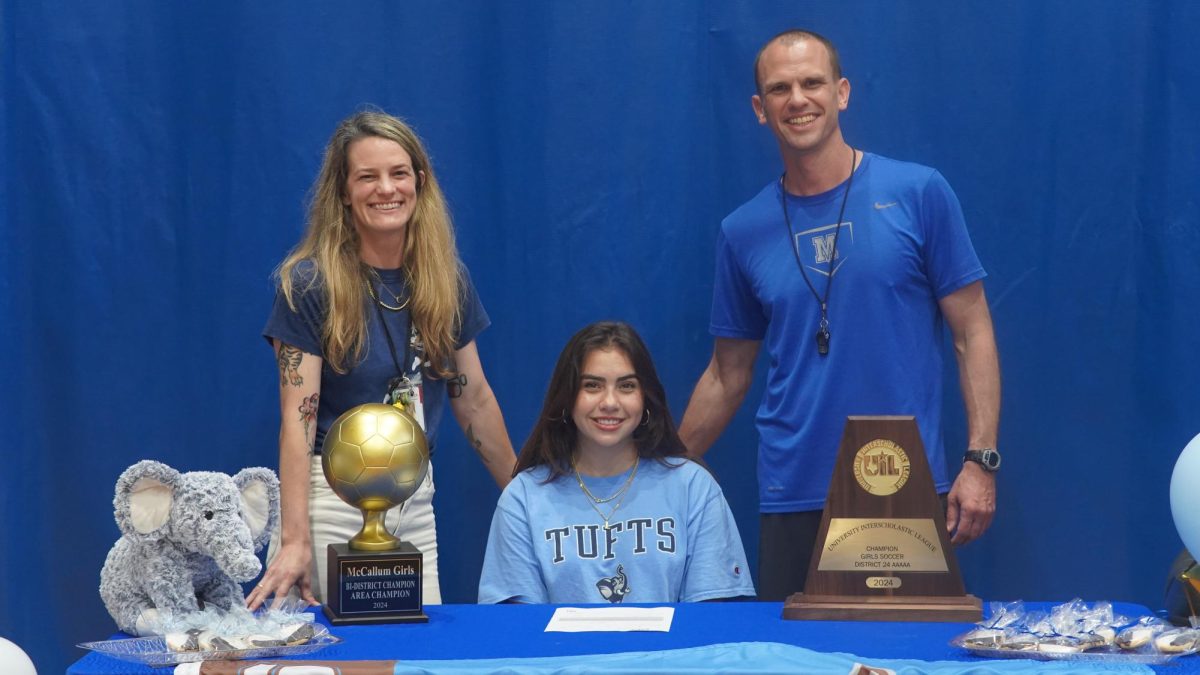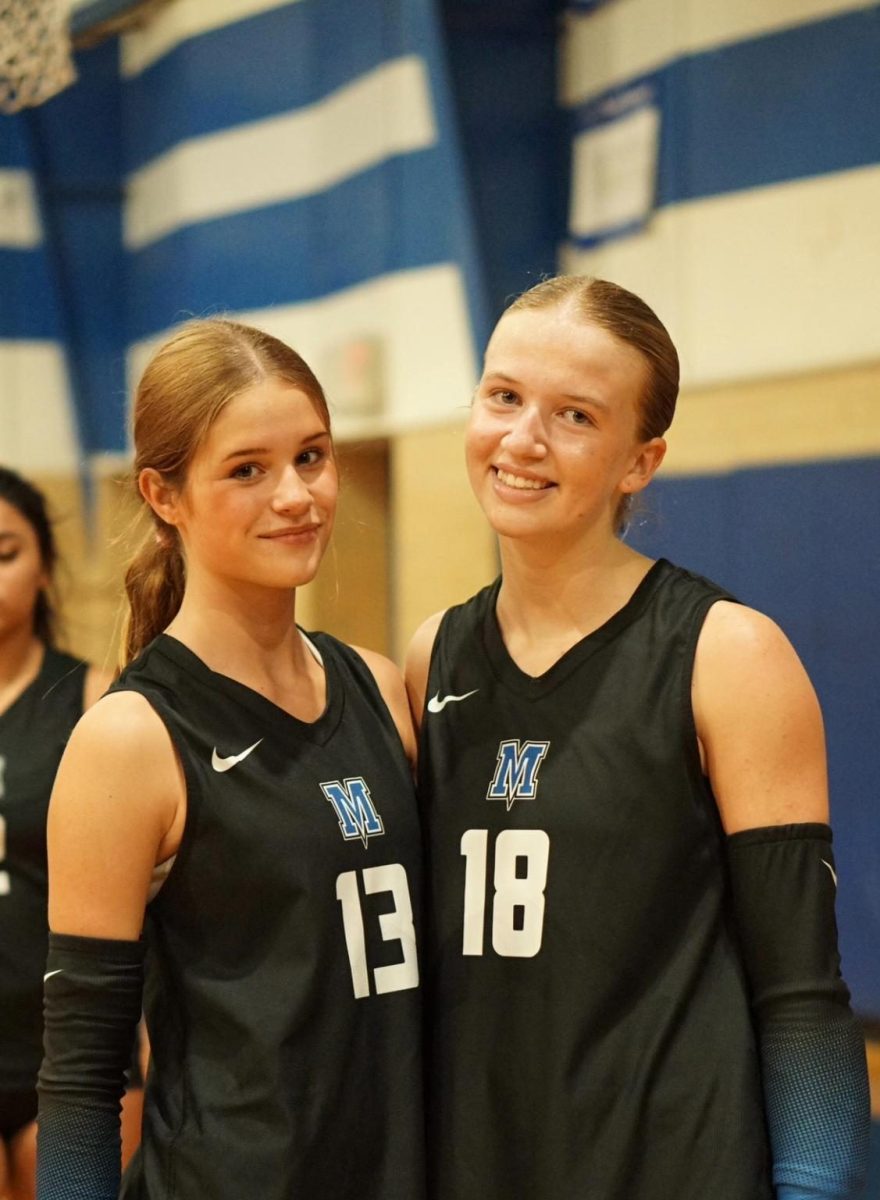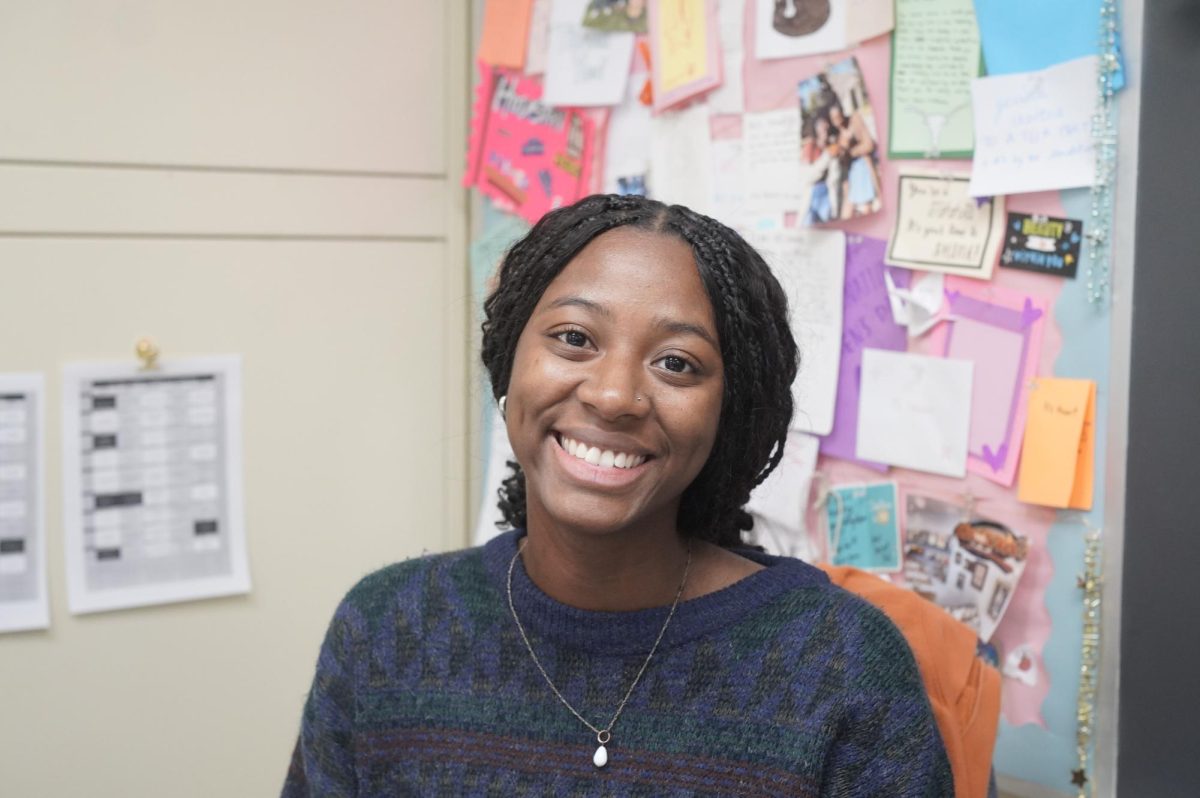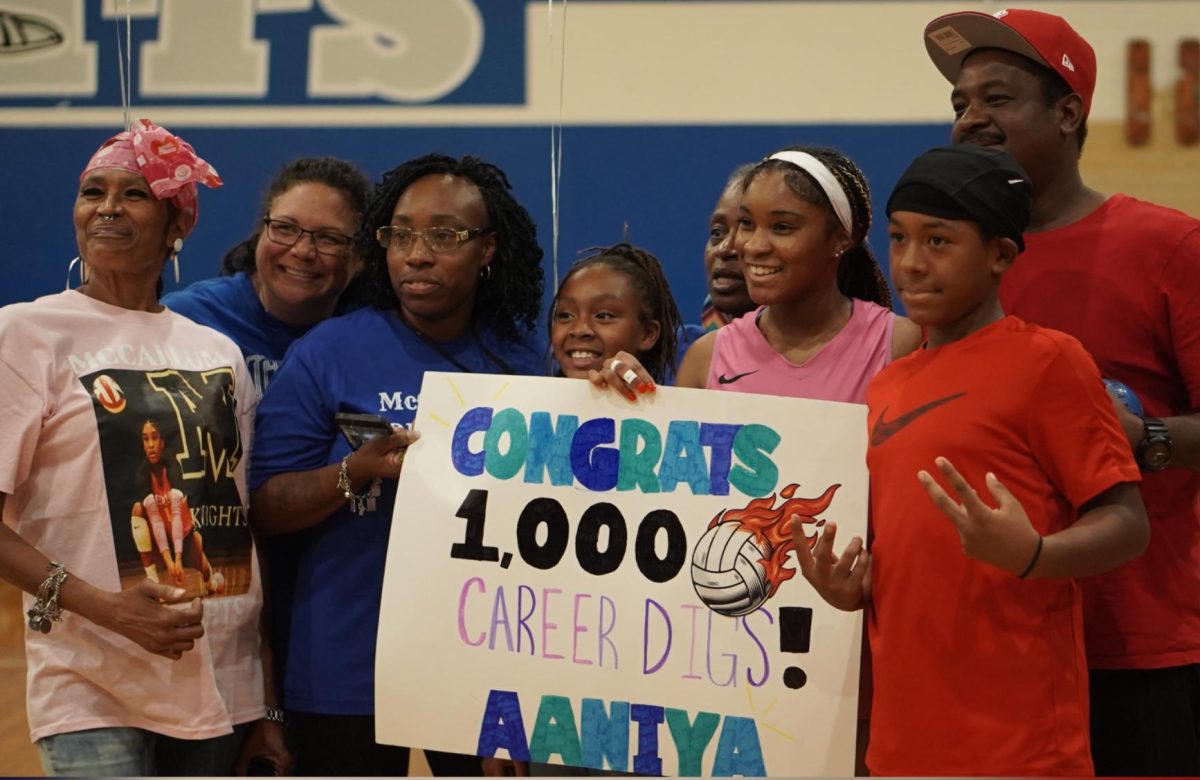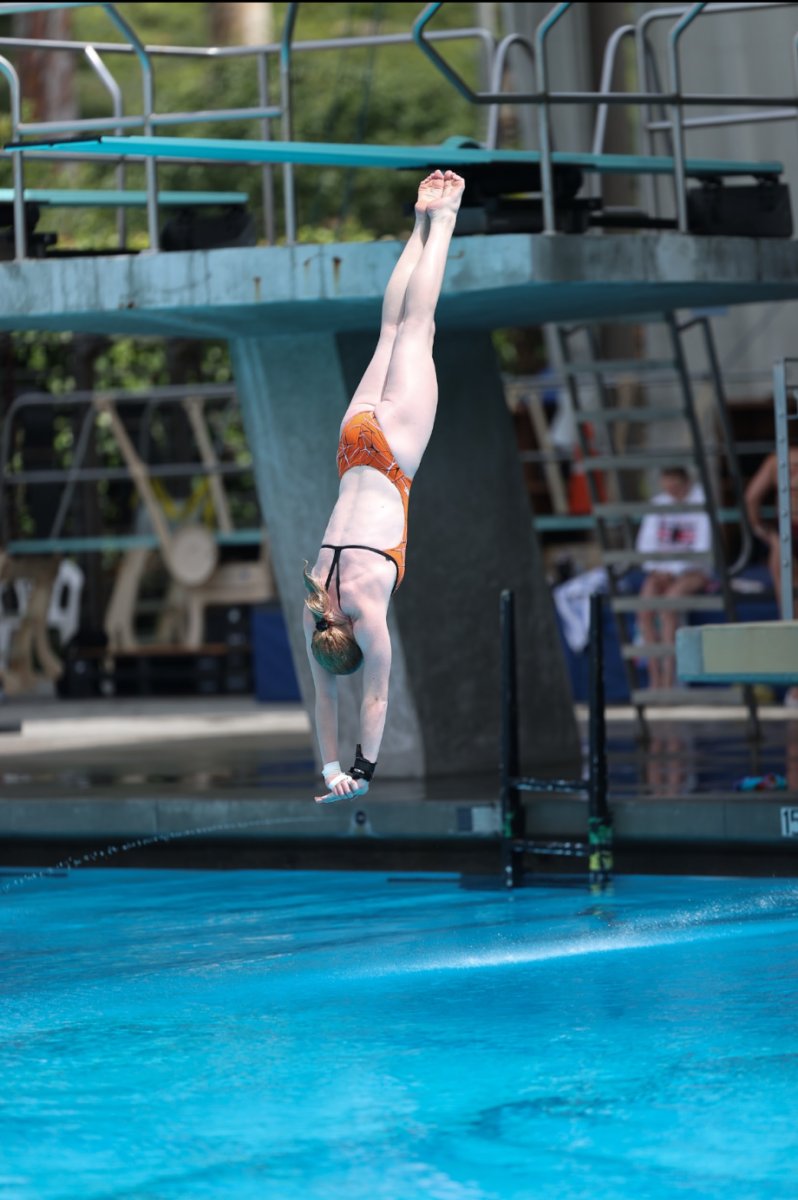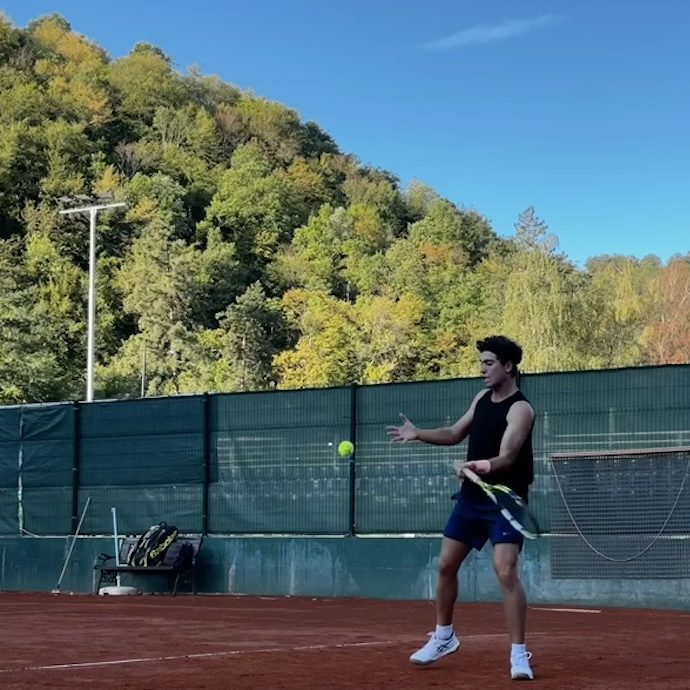As seniors prepare to attend colleges, a few seniors’ decisions looked different because of the added component of collegiate sports. For high school seniors dedicated to pursuing their chosen sport at a higher level, the process can begin as early as freshman year. Students reach out, attend college camps and are in constant contact with college coaches, establishing a line of communication. For high schoolers, the earliest a college can start formally communicating with a student is June 15 after their sophomore year or Sept. 1 of their junior year.
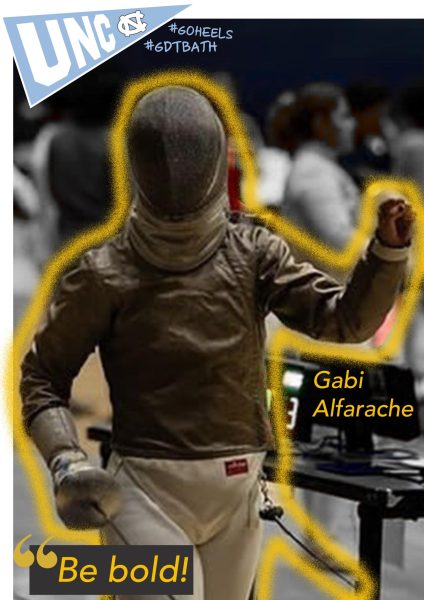
Senior Gabi Alfarache committed to University of North Carolina at Chapel Hill, in part because it has a D1 fencing program which will allow her to continue her fencing career.
While she didn’t formally commit until her senior year, her college recruitment process began when she was 15. She began compiling the statistics of her wins, losses and points, competing in more tournaments and becoming more involved in the college process.
“I began emailing coaches pretty frequently at least once every three weeks with information about myself, my academic resume and my results in fencing,” Alfarache said. “Additionally, I would make an effort to introduce myself to coaches when I saw them at national tournaments.”
For most collegiate sports, athletes are encouraged to take the first steps by reaching out and expressing interest in colleges. College coaches will then respond and invite athletes to camps and potentially watch them play at their school or club games.
That was how the process began for senior Sarah Hauck, who is committed to Tufts University to play soccer, a Division III program. Hauck knew all along she wanted to focus on a school with a top academic program while also pursuing her passion for soccer.
“It just depends on your priorities,” Hauck said. “For me it was academics.”
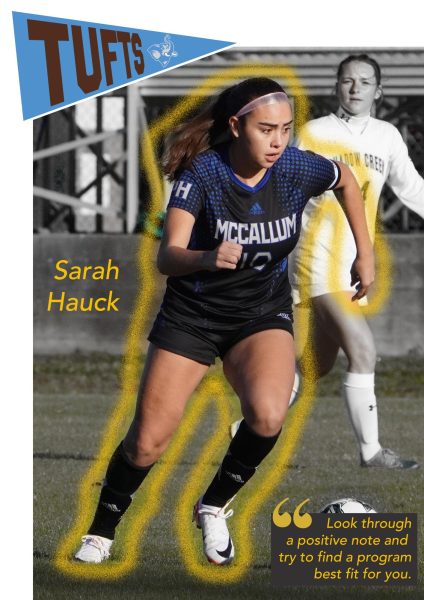
Like Hauck, senior Ohad Klein has spent his high school career playing soccer while preparing to continue playing in college. He played soccer at McCallum all four years of high school, the first two years on JV and the last two on varsity. Klein plans to walk on to the soccer team at Trinity University in San Antonio.
“A lot of people around my age stop playing and go a different route, but I love playing,” Klein said. “I play every day, and I wanted to keep it going,”
Playing a sport during the school year, all three seniors noted, can take mental, physical, and time commitments. But, for Hauck playing sports helped keep structure in life.
“You have to schedule a time during the day or after practice when you want to do your homework, you don’t just go home and have the whole afternoon off,” Hauck said. “In order for me to hang out with my friends, I had to get my homework out of the way but also had to deal with going to practice and other things.”
Klein also worked to organize his routine so that he had enough time for soccer and for school into his daily life.
“It was never an issue for me,” Klein said. “It can sometimes be stressful at times like when finals are happening.”
Alfarache feels that her social life was more impacted by her rigorous practice schedule than her academic life. This tradeoff is the necessary consequence of spending so much time contacting and working with colleges as well as working on self-improvement.
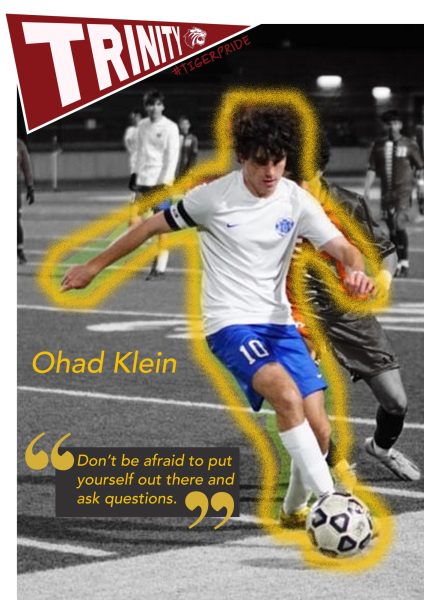
“There are countless hangouts, parties and other social events that I missed out on,” Alfarache said. “Additionally, after years of this kind of schedule, people begin to assume I’m always busy and tend not to reach out as often because of it.”
All three seniors used their role in sports throughout high school as a pathway for the future, and have a word of advice for other students navigating the college-commitment process.
“Be Bold!” Alfarache said. “I heard the quote ‘If you don’t believe you can do it, how will anyone else?’ and I think for scenarios like this, it’s a great concept to live by.”
Klein believes in truly loving your college and not just going because of the sports program.
“Make sure you like the school behind the sport,” Klein said, “It is a very important part of your future, and don’t be afraid to put yourself out there and ask questions.”
Finally, Hauck’s message is to be open-minded in the end.
“Don’t shut down a college just because of its division level,” she said. “There are schools with very good programs and people. Don’t put yourself down when you call one college or another, and a coach doesn’t like you. Try to look through a positive note, and find a program best fit for you.”


